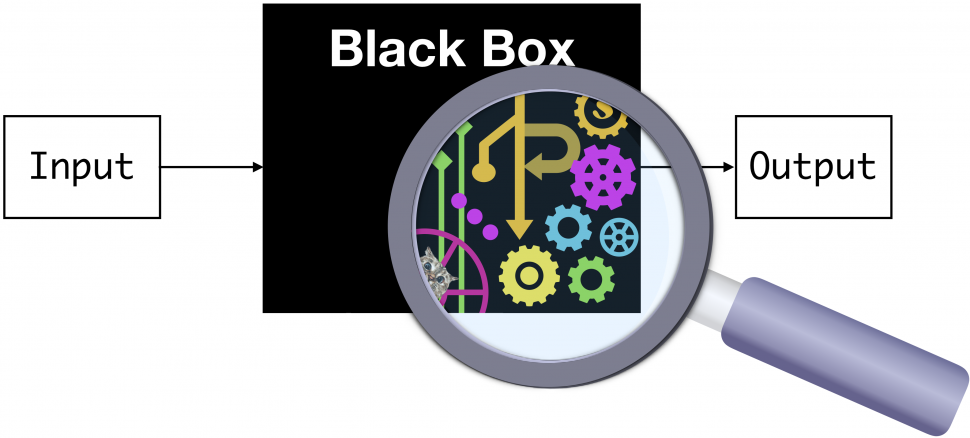- Courses
- GS Full Course 1 Year
- GS Full Course 2 Year
- GS Full Course 3 Year
- GS Full Course Till Selection
- Answer Alpha: Mains 2025 Mentorship
- MEP (Mains Enrichment Programme) Data, Facts
- Essay Target – 150+ Marks
- Online Program
- GS Recorded Course
- Polity
- Geography
- Economy
- Ancient, Medieval and Art & Culture AMAC
- Modern India, Post Independence & World History
- Environment
- Governance
- Science & Technology
- International Relations and Internal Security
- Disaster Management
- Ethics
- NCERT Current Affairs
- Indian Society and Social Issue
- NCERT- Science and Technology
- NCERT - Geography
- NCERT - Ancient History
- NCERT- World History
- NCERT Modern History
- CSAT
- 5 LAYERED ARJUNA Mentorship
- Public Administration Optional
- ABOUT US
- OUR TOPPERS
- TEST SERIES
- FREE STUDY MATERIAL
- VIDEOS
- CONTACT US
SC Upholds Inclusion of ‘Socialist’ and ‘Secular’ in Constitution’s Preamble
SC Upholds Inclusion of ‘Socialist’ and ‘Secular’ in Constitution’s Preamble
- In November 2024, the Supreme Court of India dismissed petitions challenging the 42nd Amendment of the Constitution, which added the terms 'secular' and 'socialist' to the Preamble in 1976 during the Emergency.
- The court upheld the validity of these terms, stating that they are widely accepted and well understood by the people of India.
- A bench consisting of Chief Justice Sanjiv Khanna and Justice Sanjay Kumar affirmed that Parliament's power under Article 368 to amend the Constitution includes the Preamble.
- The court also rejected the argument that these terms could not have been added retrospectively in 1976 to the original Preamble, which was adopted on November 26, 1949.
What Arguments Were Presented for Removal of Terms "Socialist" and "Secular"?
-
Preamble’s Amendment Date:
- Petitioners argued that the 42nd Amendment of 1976, which added socialist and secular, was unconstitutional because the Constitution was adopted on 26th November 1949, and changes were made much later in 1976.
- The Supreme Court, however, defended the inclusion of these terms, said that the Constitution is a living document that can change with time to reflect the needs of society.
-
1989 Amendment to the Representation of People Act (RPA):
- Petitioners also argued that the 1989 amendment to the RPA, which made political parties swear allegiance to socialism and secularism, violated their freedom of speech under Article 19(1)(a).
Court's Ruling:
- A bench of Chief Justice of India Sanjiv Khanna and Justice Sanjay Kumar said the Parliament’s power under Article 368 to amend the Constitution also extends to the Preamble.
- Court also rejected the argument that the words could not have been added retrospectively in 1976 to the original Preamble which has a cut off date of November 26, 1949.
- “The fact that the Constitution was adopted… on the 26th day of November, 1949, does not make any difference.
- The bench also said that the date of adoption does not limit or restrict the power granted under Article 368 of the Constitution.
- It also noted that if the argument for retrospectivity were accepted, it could apply to any constitutional amendments.
- However, the bench emphasized that Parliament's power to amend the Constitution under Article 368 is unquestionable and is not challenged.
On the Term ‘Secular’:
- In 1949, the term ‘secular’ was seen as somewhat unclear, with some jurists interpreting it as opposition to religion.
- However, over time, India developed its own understanding of secularism, which is now enshrined in the Constitution.
- The court clarified that Indian secularism does not mean opposition to religion, but rather the state's neutrality toward all religions.
- The State neither supports nor discriminates against any religion, ensuring freedom of belief and practice.
- This view is reflected in Articles 14, 15, and 16, which guarantee equality before the law, protection from discrimination, and freedom of religion.
On the Term ‘Socialist’:
- The court explained that the term ‘socialist’ should not be interpreted in a way that limits the economic policies of an elected government.
- Instead, it signifies the State's commitment to being a welfare state—aiming to improve the well-being of all citizens, particularly in areas like healthcare, education, and poverty reduction.
- The bench referred to a decision by a 9-judge bench in Property Owners Association and Others v. State of Maharashtra, which stated that the Constitution allows the government to adopt any economic structure that best serves the welfare of the people, as long as it is accountable to the electorate and complies with the Constitution.
Differences Between Western and Indian Concepts of Secularism and Socialism
1. Secularism
|
Aspect |
Western Concept of Secularism |
Indian Concept of Secularism |
|
Definition |
Strict separation of religion from state affairs. |
No strict separation; promotes equal respect for all religions. The state actively fosters religious harmony. |
|
Role of Religion |
Religion is a private matter; the state remains neutral. |
State recognises and accommodates diverse religions, promoting peaceful coexistence. |
|
Government's Obligation |
No obligation to endorse or support any religion. |
The state is responsible for treating all religions equally and ensuring their respect in society. |
|
Individualism vs Collectivism |
Focus on individual religious freedom without state interference. |
Emphasises the collective rights of religious communities, safeguarding their cultural practices. |
|
Cultural Context |
Developed in societies with religious conflicts, prioritising state neutrality. |
Evolved in a pluralistic society with a history of religious coexistence. |
|
Educational Institutions |
Public schools are secular and prohibit religious instruction. |
Schools may include religious education to reflect the community’s diversity. |
2. Socialism
|
Aspect |
Western Concept of Socialism |
Indian Concept of Socialism |
|
Main Focus |
Advocates for collective or government ownership of production to achieve economic equality. |
Focuses on democratic socialism with equitable distribution, while allowing a mixed economy with both public and private sectors. |
|
Economic Structure |
Typically involves centralised planning with state control over industries, especially in Marxist or Leninist contexts. |
Involves indicative planning with the private sector also playing a role in achieving economic targets. |
|
Class Struggle |
Emphasises class conflict (proletariat vs. bourgeoisie) as a driving force for change. Often sees capitalism as the enemy. |
Focuses on social justice and uplifting marginalized communities, without advocating class struggle. |
|
Role of the State |
The state plays a central role in economic planning and resource allocation in radical socialism. |
The state has a regulatory role, implements welfare schemes, and encourages private enterprise while balancing social justice. |
|
Cultural Context |
Rooted in response to industrial capitalism and urbanisation in the West, often influenced by Marxist theory. |
Developed in post-colonial India to address inequalities, with a focus on both social justice and respecting diverse cultural identities. |
|
Globalisation and Trade |
Critical of globalisation, viewing it as capitalist exploitation. |
Generally supportive of globalisation, recognising India’s need to engage in global markets while ensuring social welfare. |
Role of the Indian Judiciary in Shaping Secularism:
The Indian Judiciary has played a significant role in defining and safeguarding secularism through various landmark judgments:
- Sardar Taheruddin Syedna Sahib Case (1962):
- The Supreme Court highlighted the secular nature of Indian democracy by interpreting Articles 25 and 26 of the Constitution, which deal with freedom of religion.
- These articles ensure that the State remains neutral and does not interfere in religious matters.
-
Kesavananda Bharati Case (1973):
- The Supreme Court ruled that secularism is part of the basic structure of the Indian Constitution, reinforcing the idea that secularism is essential to the framework of the Indian state and cannot be altered.
-
SR Bommai Case (1994):
- The Court explained that secularism means equal treatment of all religions by the state.
- It emphasized that the 42nd Amendment (1976), which included secularism in the Preamble, aligned with the fundamental rights guaranteed in Articles 25-28 of the Constitution, which protect religious freedom.
Role of the Indian Judiciary in Shaping Socialism
The Indian Judiciary has also significantly influenced the development and understanding of socialism in India through several key cases:
-
Kesavananda Bharati Case (1973):
- The Supreme Court ruled that socialism is a fundamental part of the Constitution’s basic structure.
- This decision reinforced the role of socialism in promoting social justice and equality within Indian society.
-
State of Karnataka vs Sri Ranganatha Reddy Case (1977):
- The Court emphasized that socialism should focus on the common good, especially in policies related to nationalisation and acquisition of resources.
- The aim of such policies should be to ensure equitable wealth distribution.
-
Maneka Gandhi Case (1978):
- The Supreme Court emphasized that the right to life includes the right to live with dignity, a principle central to socialism.
- This ruling underscored that the State must ensure a fair quality of life for all its citizens, especially the marginalized.
-
Minerva Mills Case (1980):
- The Court emphasized the need to harmonize Fundamental Rights with the Directive Principles of State Policy (DPSP), arguing that the DPSP should guide state policies to secure social and economic justice in line with socialist principles.
Conclusion
The Supreme Court's ruling affirming the inclusion of ‘socialist’ and ‘secular’ in the Constitution’s Preamble solidifies the constitutional commitment to social justice and religious neutrality. The Court’s interpretation ensures that socialism and secularism are not merely theoretical concepts but are central to the functioning of the state and the protection of rights in modern India. These principles remain foundational to India's governance and are reflected in the evolving jurisprudence of the Indian judiciary.
Article 368: Power of Parliament to Amend the Constitution(1) Power to Amend the Constitution:
(2) Procedure for Amendment:
Special Amendments Requiring State Ratification:Certain amendments need to be ratified by the Legislatures of at least half of the States before being presented to the President for assent. These include amendments that:
(3) No Impact of Article 13:
|




